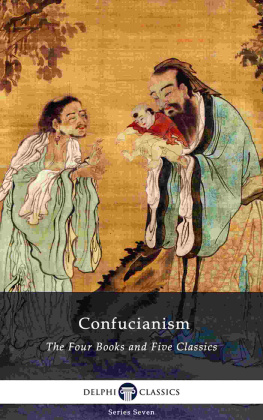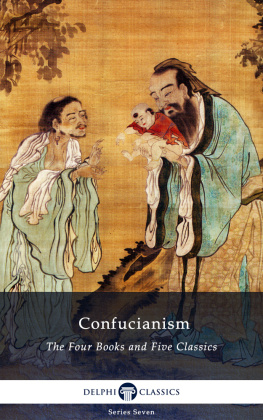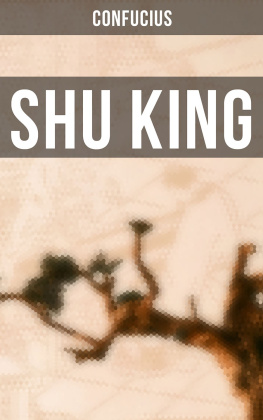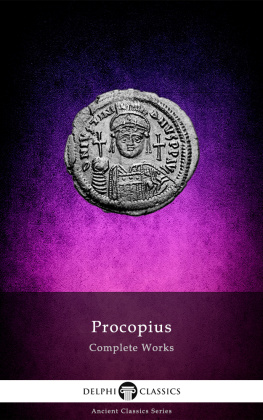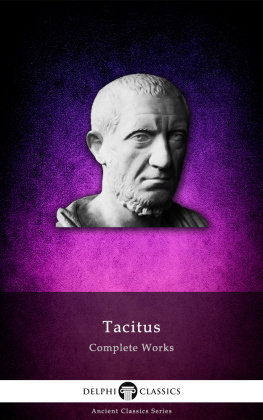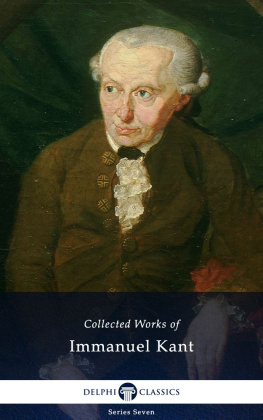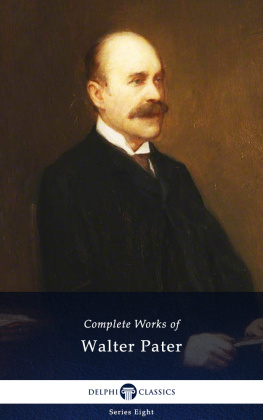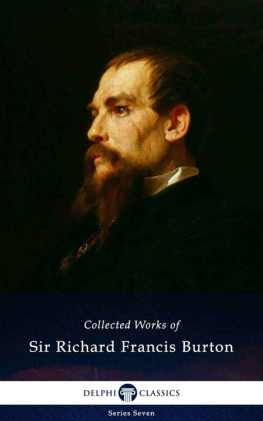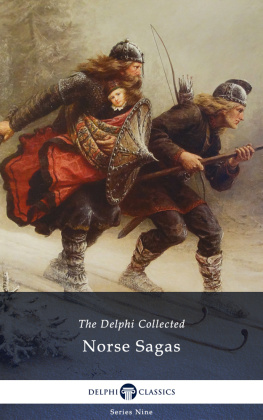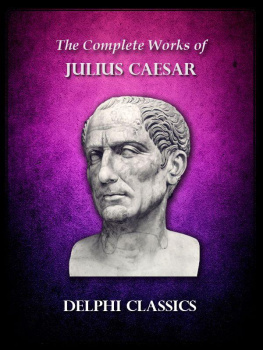The Collected Works of
CONFUCIUS
(551-479 BC)
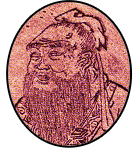
Contents

Delphi Classics 2016
Version 1
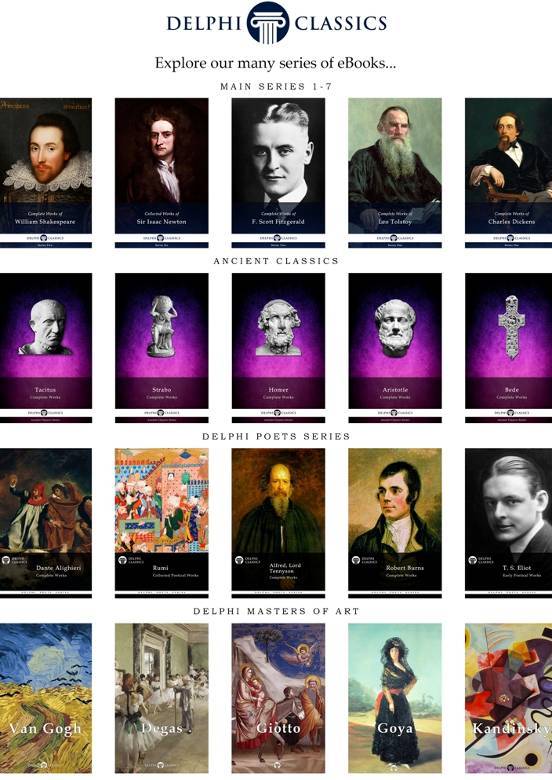
The Collected Works of
CONFUCIUS
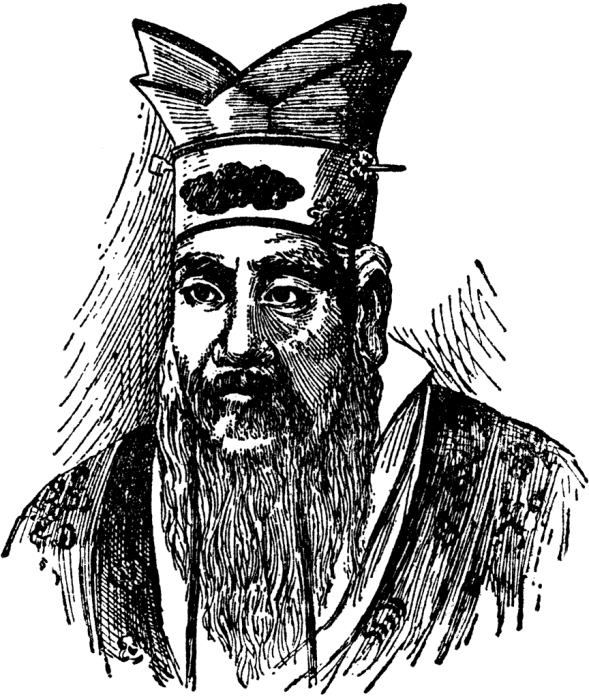
By Delphi Classics, 2016
COPYRIGHT
Confucianism: The Four Books and Five Classics Collected Works of Confucius
First published in the United Kingdom in 2016 by Delphi Classics.
Delphi Classics, 2016.
All rights reserved. No part of this publication may be reproduced, stored in a retrieval system, or transmitted, in any form or by any means, without the prior permission in writing of the publisher, nor be otherwise circulated in any form other than that in which it is published.
ISBN: 978 1 78656 052 0
Delphi Classics
is an imprint of
Delphi Publishing Ltd
Hastings, East Sussex
United Kingdom
Contact: sales@delphiclassics.com
www.delphiclassics.com
Parts Edition Now Available!
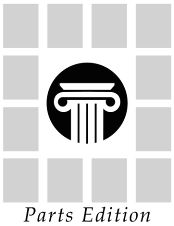
Love reading Confucius ?
Did you know you can now purchase the Delphi Classics Parts Edition of this author and enjoy all the novels, plays, non-fiction books and other works as individual eBooks? Now, you can select and read individual novels etc. and know precisely where you are in an eBook. You will also be able to manage space better on your eReading devices.

The Parts Edition is only available direct from the Delphi Classics website.
For more information about this exciting new format and to try free Parts Edition downloads , please visit this link .
The Four Books
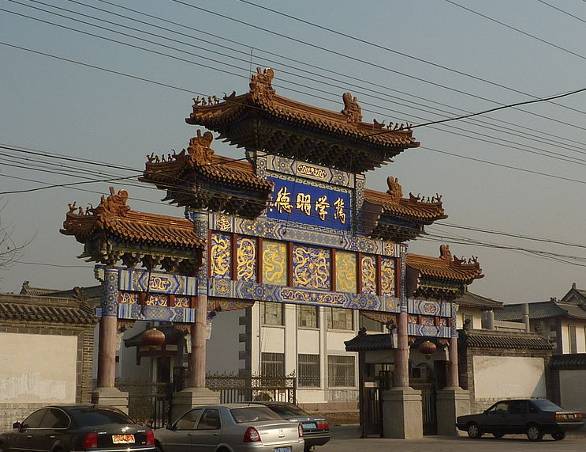
Qufu, a city in southwestern Shandong Province, near the eastern coast of China Confucius birthplace
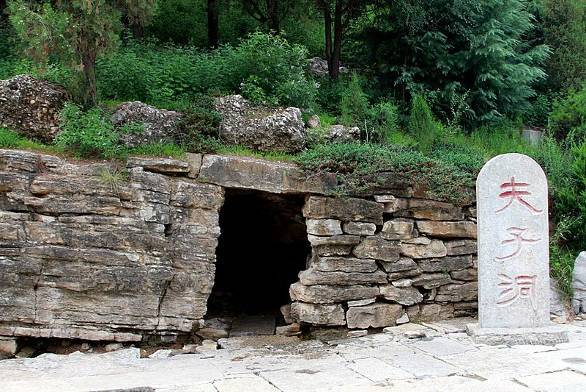
Confucius cave on Mount Ni according to legend, Confucius was abandoned in this cave after birth by his mother due to his ugliness. The baby was then taken care of by a tiger and an eagle, which convinced his mother to reclaim him.
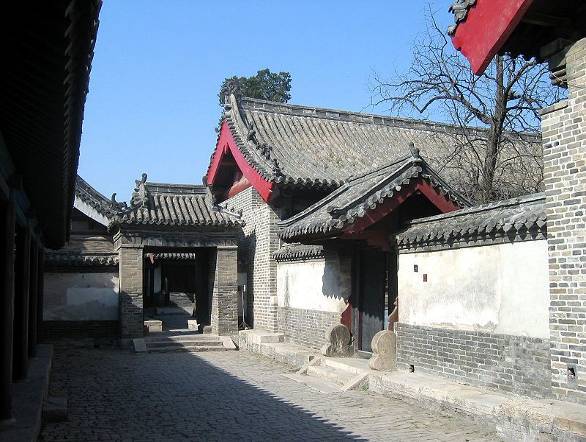
The Kong Family Mansion in Qufu was the historical residence of the direct descendants of Confucius in the City of Qufu. The extant structures mainly date from the Ming and Qing dynasties. From the mansion, the family tended to the Confucian sites in Qufu and also governed the largest private rural estate in China.
GREAT LEARNING

Translated by James Legge
One of the Four Books of Confucianism selected by the neo-Confucian Zhu Xi during the Song Dynasty as a foundational introduction to Confucianism The Great Learning comes originally from a chapter in the Classic of Rites , forming one of the Five Classics. It consists of a short main text attributed to the teachings of Confucius, followed by ten commentary chapters accredited to one of Confucius disciples, Zengzi. The ideals of the book were supposedly formed by Confucius, though it is believed the text was written after his death.
The Great Learning developed from many authors adapting to the needs and beliefs of the community at the time. The Cheng brothers, Yi (10331107) and Hao (10321085) both utilised the philosophies of the The Great Learning . Their ideas met with strong official opposition, but were reconstituted by Zhu Xi. Chengs idea of yi was that it was identical with nature, which he believed was essentially good. Chengs yi emphasised the necessity of acquiring knowledge. During the Southern Song Dynasty, Zhu Xi rearranged The Great Learning and included it in the Four Books, along with the Doctrine of the Mean , the Analects of Confucius and the Mencius . Zhu Xi separated the Great Learning, which was originally a chapter in the Classic of Rites . Zhu Xi organized the book as Jing followed by ten expositions. Zhu Xi was a student of Li Tong. Zhu Xi developed the Chengs Confucian ideas and drew from Chan Buddhism and Daoism. He adapted some ideas from these competing religions into his form of Confucianism.
The principal teachings of the text are:
- Achieving a state of balance and refining ones moral self such that it is a reflection of the Tao (way).
- Sufficient rest and reflection such that one achieves peace of mind. When one is calm and reflected, the Tao will be revealed to them.
- Setting priorities and knowing what is important is essential in ones quest for moral refinement.
- One must bring his affairs and relationships into order and harmony.
- Each and every man is capable of learning and self-cultivation regardless of social, economic or political status.
- One must treat education as an intricate and interrelated system where one must strive for balance.
One of the first steps to understanding The Great Learning is to recognise how to investigate things. This does not consist of scientific inquiry and experimentation, but introspection, building on what is already known of principle. True introspection was supposed to allow the mind to become all knowing with regards to morality, relationships, civic duty and nature.
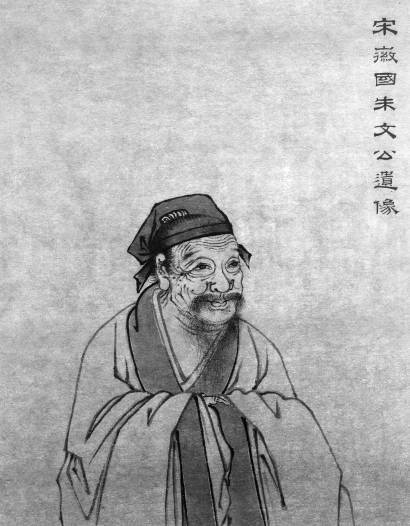
Zhu Xi (1130-1200) was a Song dynasty Confucian scholar, who was the leading figure of the School of Principle and the most influential rationalist Neo-Confucian in China. His contributions to Chinese philosophy, including his assigning special significance to the Analects, the Mencius, the Great Learning and the Doctrine of the Mean, formed the basis of Chinese bureaucracy and government for over 700 years.
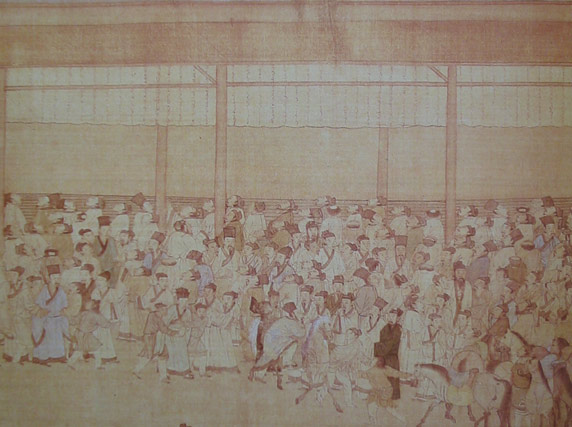
Candidates gathering around the wall where the results are posted, (c. 1540, by Qiu Ying) a key process of the imperial examinations.
The Great Learning
What the great learning teaches, is to illustrate illustrious virtue; to renovate the people; and to rest in the highest excellence.
The point where to rest being known, the object of pursuit is then determined; and, that being determined, a calm unperturbedness may be attained to. To that calmness there will succeed a tranquil repose. In that repose there may be careful deliberation, and that deliberation will be followed by the attainment of the desired end.
Next page
